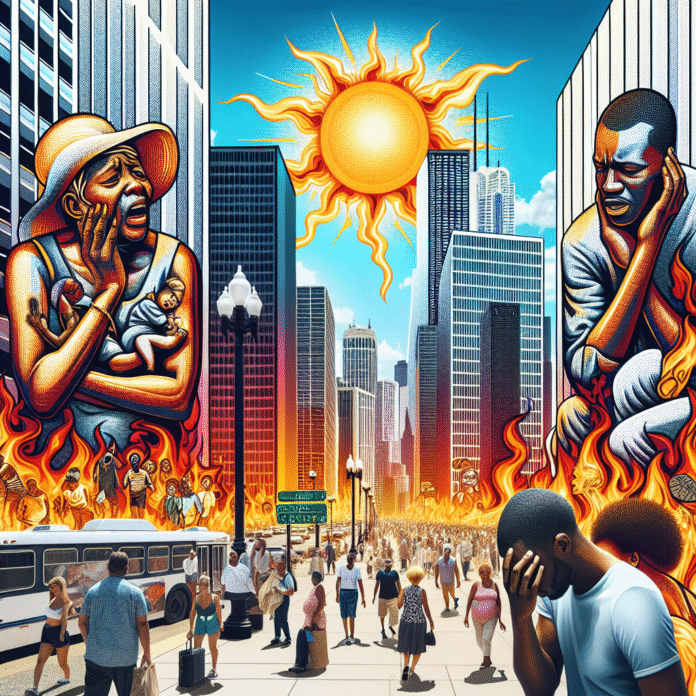Chicago’s Unhoused Face Intense Heat Challenge
For Unhoused People in Chicago, There’s No Escaping This Heat
As summer settles over Chicago, the city’s unhoused population faces an escalating crisis exacerbated by extreme heat. With temperatures frequently soaring above 90°F, the challenges for individuals without stable housing multiply. The lack of access to cooling facilities, safe outdoor spaces, and adequate hydration puts these vulnerable residents at severe risk.
Many unhoused individuals seek refuge in public spaces such as parks or under bridges, but these areas offer limited relief from the oppressive heat. Without the means to secure air conditioning or even a fan, they are left to contend with the sweltering conditions. The city has made efforts to open cooling centers, but these facilities often operate under limited hours and can be difficult to access for those without transportation.
Moreover, the health implications of extreme heat are particularly dire for unhoused individuals, many of whom may already suffer from chronic health issues. Heat-related illnesses such as heat exhaustion and heat stroke are significant concerns, especially for those with existing medical conditions or compromised immune systems. The Chicago Department of Public Health has warned that prolonged exposure to high temperatures can lead to severe dehydration, organ failure, and even death.
Social service organizations are working tirelessly to provide support, distributing bottled water, electrolyte drinks, and other essentials to those in need. Community outreach efforts have intensified, with volunteers and local nonprofits seeking to connect unhoused individuals to available resources, including emergency shelter and health care services. However, the sheer scale of the issue often overwhelms these initiatives.
The systemic factors contributing to homelessness in Chicago, including the lack of affordable housing and insufficient mental health services, compound the dangers posed by extreme weather. Many unhoused individuals find themselves trapped in a cycle of poverty and instability, making it difficult to escape their circumstances even during crises.
In addition to immediate relief efforts, longer-term solutions are necessary to address the root causes of homelessness. Advocates call for increased funding for affordable housing initiatives, mental health resources, and comprehensive support services that can help individuals transition out of homelessness.
As climate change continues to exacerbate weather patterns, cities like Chicago must adapt their strategies to protect their most vulnerable residents. The intersection of housing insecurity and extreme weather highlights the urgent need for comprehensive policy changes that prioritize the health and safety of all citizens.
While the summer heat poses a formidable challenge, community solidarity and advocacy efforts remain crucial in supporting unhoused individuals. As Chicagoans come together to combat the effects of extreme heat, it is a reminder that everyone deserves the right to safety and comfort, no matter their living situation.


